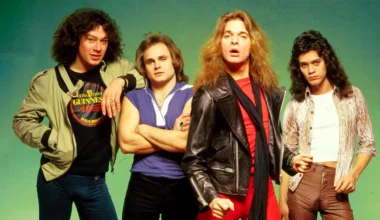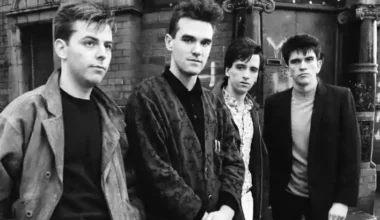Robert Plant’s legendary status among rock fans is nearly unmatched. As the iconic frontman of Led Zeppelin, Plant didn’t just lead one of the most influential bands of the 1970s; he embodied the archetypal rock star, complete with his high-energy stage presence and powerful vocals.
His contributions, alongside bandmates Jimmy Page, John Bonham, and John Paul Jones, solidified Led Zeppelin as a rock juggernaut. Each member was a master of their craft, creating a collective force that defined the era.
Jimmy Page, Zeppelin’s guitarist, once proclaimed, “When you talk about a band as a collaborative musical unit, we were the best.”
His reasoning was simple: the chemistry between the four musicians was extraordinary, making them more than just a group of talented individuals but a groundbreaking collective. Even as time passes, their influence continues to reverberate through the rock world.
Despite Led Zeppelin’s massive legacy, a few things can still eclipse the stature of such a band, and one of them is Desert Island Discs, a long-standing British radio institution.
When Plant was invited to participate in this iconic program, he took the opportunity to share the music that influenced him the most, offering a rare glimpse into his personal and musical inspirations.
During his appearance, he also reflected on key moments in his life, including the profound impact of his parents, Birmingham Town Hall, and his enduring grief for his close friend and bandmate, John Bonham.
The loss of Bonham was a defining moment for Plant. It didn’t just mark the end of Led Zeppelin but also the passing of his best friend.
He recalled the bittersweet memories of their time together, saying, “We were really kids, and we grew up not having a clue about anything at all. Just the two of us, sort of loud, confident, and mostly wrong… I do miss him.” Their bond went back even before the formation of Zeppelin, making their shared success all the more meaningful.
Plant also touched on his relationship with his parents. His father, an avid cyclist, and his mother, who he described as “suitably and joyously combustible,” both encouraged his creative pursuits.
His mother’s love for music filled their home, with her singing everything from Kathleen Ferrier to folk classics. Plant credits these early influences for shaping his path toward rock stardom.
Growing up in the Midlands, a region that also birthed heavy metal pioneers Black Sabbath, Plant was surrounded by a vibrant musical environment.
Birmingham Town Hall played host to some of the era’s most legendary acts, including blues legends Muddy Waters and Howlin’ Wolf. These performances had a lasting impact on Plant, helping to inspire his future work with Led Zeppelin.
As part of Desert Island Discs, Plant selected eight records that held special meaning for him, including Howlin’ Wolf’s “I Ain’t Superstitious” and Crosby, Stills, Nash & Young’s protest anthem “Ohio.”
However, when asked which one song he would save from the waves, Plant’s choice was clear: Mario Lanza’s “Serenade.”
He described the track as evocative and powerful, a piece that gave him goosebumps. “Imagine singing along with that until you got it right?” he mused, highlighting the song’s emotional resonance for him.
Though best known for his contributions to rock, Plant’s love for Lanza’s operatic style reveals a broader range of musical influences. “Serenade” may seem like an unusual choice for a rock icon, but for Plant, it’s the one song that rises above the rest, carrying a beauty that transcends genre.
In sharing his Desert Island Discs, Robert Plant offers a rare window into his personal life, his deep musical roots, and the lasting friendships that shaped his career. Though his heart remains in rock and roll, his choices reflect a wide-ranging appreciation for music that has defined his journey.







